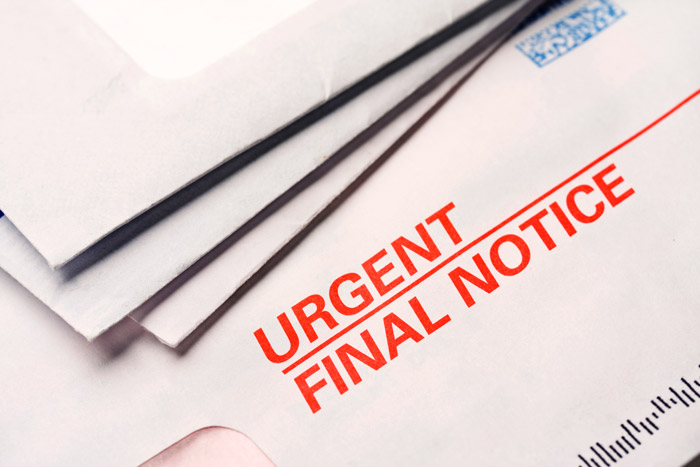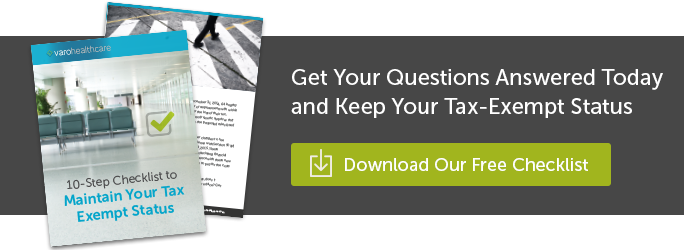This blog is one of a 10-part series on how charitable hospitals can retain their tax-exempt status. Today, we have arrived at part 8 - “We provide written notifications to individuals 30 days before making extraordinary collections actions.”
Turning accounts over to collections agencies is an everyday occurrence in the medical billing world, but charitable hospitals need to be careful about when and how they do so. The new 501(r) regulations give a very clear timeline which must be followed in order to remain compliant. Let’s take a look at how that shakes out in practice.

The Notification Period
The notification period is 120 days from the time the first billing statement is sent. During this time, hospitals providing charity care are required to make reasonable efforts to provide and distribute financial assistance policy notifications to patients who may be eligible for charity care. In other words, you have to attempt to get a paper explaining financial assistance in the hands of patients, either in person, or via mail.
During these 120 days, no extraordinary collections actions can be taken, because you may need to make more than one attempt to contact your patients. 120 days allows enough time for several written notices to be sent, during which time patients can see if they qualify for assistance.
The Exceptions: There are some cases where you may be justified in turning a patient over to collections during the notification period. These include: mail returns due to invalid address, multiple delinquent accounts held by the same patient, or patients with a history of being delinquent over and over again.
The Application Period
The application period is 240 days from the time of the first billing statement. During this time, patients still have the option to apply for financial assistance, even if they have already been turned over for collections. During this time, hospitals are required to accept and process all requests for financial assistance. If a patient is found to be eligible, the hospital must cease collections activity immediately.
The Exceptions: If a patient turns in their paperwork within the 240 days, and is determined to NOT be eligible for financial assistance, collections actions may proceed or continue.
Understanding the notification and application periods outlined in the new 501(r) regulations is just one of the many requirements put forth by the IRS. There is a lot of pressure on charitable hospitals right now, because they must be 100% compliant with the new system, or else risk losing their tax-exempt status. If you need assistance in making sure your facility is on the right path, download this free 10-point checklist from Varo Healthcare today.





